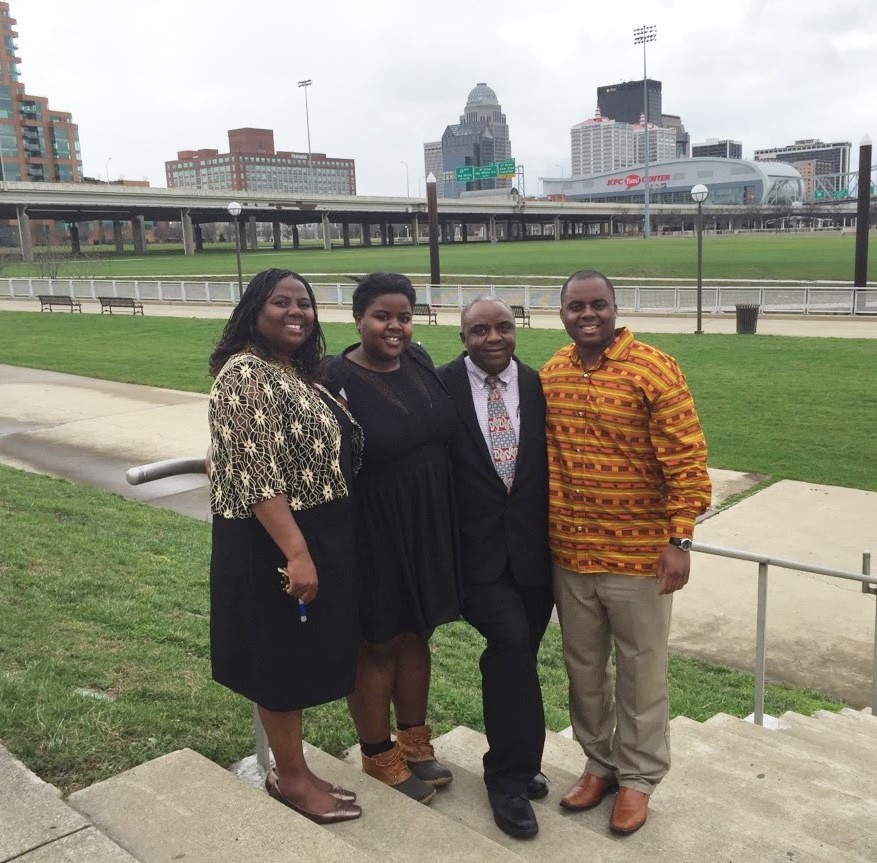Before arriving to the U.S., “It seems like heaven on earth,” says Pauline Mukeshimana. “The first three months or so, it still is heaven. Then, you start to live your own life here. The idea in your head is different than reality.” Each week, Pauline meets in a community support group of women, mostly from Rwanda or the Democratic Republic of the Congo, to discuss how they are coping and adjusting in a new home.
In 2001, Pauline and her husband arrived to Oregon as students in intercultural studies and education. They moved to Louisville in 2003, and she soon began working with the refugee community as an interpreter. She speaks Kinyarwanda, Swahili, Kirundi, French, and English. “I became involved in their lives, in the community,” she adds. “When you share a heart with people, it is easy to connect.” She soon collaborated with Kentucky Refugee Ministries’ Mental Health Coordinator Jane Evans to establish the support groups for Congolese and Rwandan women.
“The groups were created from a community adjustment curriculum,” says Jane. Speakers and professionals visited the groups to present on topics such as depression, forgiveness, and anger. “The women don’t just discuss their lives before,” Jane adds, “They talk about how to deal with life here.
The women made such a connection with each other that they continued to meet on their own for years. “People share their experiences,” Pauline says. “Struggles, problems, issues.” Issues, she says, that are often due to war and the consequences of war, such as gender-based violence.
The groups grew to include sewing and gardening activities. “When people are in the dirt, gardening, laughing — they are healing,” Pauline says. “They produce vegetables, giving themselves some income. Often the depression is because they don’t have enough in their pocket.” Refugees must work, even if a person’s only skills or experiences are in farming, she explains. “Refugees are hard workers,” she says. “Yet even after getting the job, it takes time,” she says, citing the challenges of language and cultural barriers. “Many are working beyond their strength here. Their body may feel 70,” she explains. “Living in a camp for 10, 20 years. War. That ages you.”
Women, including Pauline, thrived from the support and hands-on activities. In 2007, Pauline obtained 501(c)3 nonprofit status for her organization, Gate of Hope, which operates in both Kentucky and Rwanda. This year, refugee support group programs are growing. A partnership between Gate of Hope and Louisville Grows will offer refugees more opportunities for urban agriculture and wellness education.
Through her participation in the women’s support groups, Jane says she has seen women who cried often, women who lost entire villages and families, and women who were too afraid to leave their house. Now, “I’ve seen these women sing.” Jane says. “The strides people can make. They know when to ask for help. They’re doing so well.”
[Top photo: Pauline, her husband, and her children in Louisville, Kentucky.]
